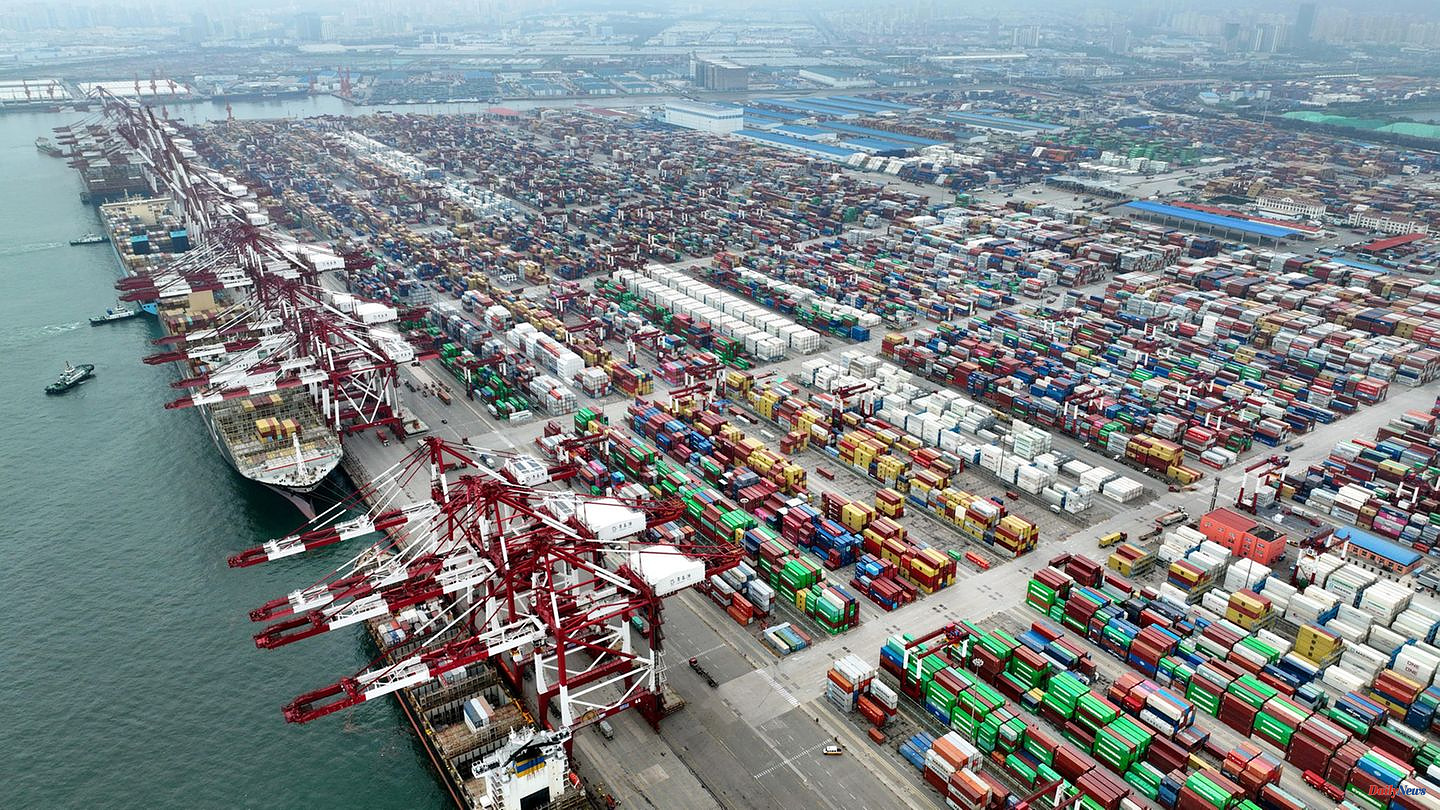The conflict with Russia causes economic turmoil and threatens the prosperity of Germans. They now want to become independent of Russian energy as quickly as possible. At the same time, however, the dispute with China is intensifying – and here the economic ties are even closer. Trade with the People's Republic is an essential part of the economic success of recent years. If the Chinese really did attack Taiwan, could we even begin to cut economic ties, as in the case of Russia?
Economists at the ifo Institute have now calculated what a trade war with China would cost Germany economically. This is of course a complex mind game with many variables. The researchers have therefore calculated various scenarios based on a tried and tested trading model. The results differ significantly depending on the nature of a potential trade conflict.
If the EU were to unilaterally decouple itself from the Chinese economy, real gross domestic product (GDP) in Germany would fall to a level that was 0.52 percent lower in the long term. The effects would be about four times as great as the economic consequences of Brexit, the scientists write. In the rest of the EU, the losses would be 0.38 percent. China itself would lose 0.42 percent of GDP.
But it would probably not stay that way: in the likely event that China would take retaliatory measures against the EU, the economic losses for all sides would be significantly higher. In this scenario, Germany would suffer real economic losses of 0.81 percent. The two-way trade war would cost the German economy almost six times as much as Brexit, the economists write. The automobile industry, mechanical engineering and transport equipment would be the most expensive.
The break with the trading partner China would be expensive. So simply bring production back to Germany and make yourself independent of authoritarian countries and despots? According to the study, the price for such a strategy of de-globalization would be much higher. An extensive relocation of production to Germany ("reshoring") would therefore reduce GDP by a hefty 9.68 percent. Germany would therefore lose almost ten percent of its economic output. Even the less radical approach of "nearshoring" - meaning relocating production from the other end of the world to the extended neighborhood, EU countries, Turkey and North Africa - would still cost 4.17 percent of GDP.
The ifo researchers therefore do not see a fundamental departure from globalization as a way out for the German prosperity model. "If Germany as an export nation wants to realign its business model, the nationalization of supply chains is not a solution that will help the economy," says study author Florian Dorn. Rather, it is more promising to conclude strategic partnerships and free trade agreements with like-minded nations such as the USA. "That should be the goal of German and European economic policy."
The calculations would change significantly if Germany and the EU joined forces with the rest of the West (USA, Canada, Great Britain, Japan, Australia) in a trade conflict with China. If a Western trade alliance "coordinatedly increases trade costs for imports from China, China would be the big loser," the researchers note. Although Germany would also lose prosperity in this scenario, China's losses would be disproportionately higher. In addition, a free trade agreement with the USA could cushion the German losses significantly, if not completely compensate, the economists calculate.
Instead of completely decoupling trade from China, economists recommend Germany and the EU to develop a "China X" strategy, i.e. to look around more intensively for alternative trading partners. "De-globalization makes us poorer," says study co-author Lisandra Flach. "Companies should not turn away from important trading partners without necessity, but instead rely on advance payments from other countries in order to reduce one-sided and critical dependencies on certain markets and authoritarian regimes."












